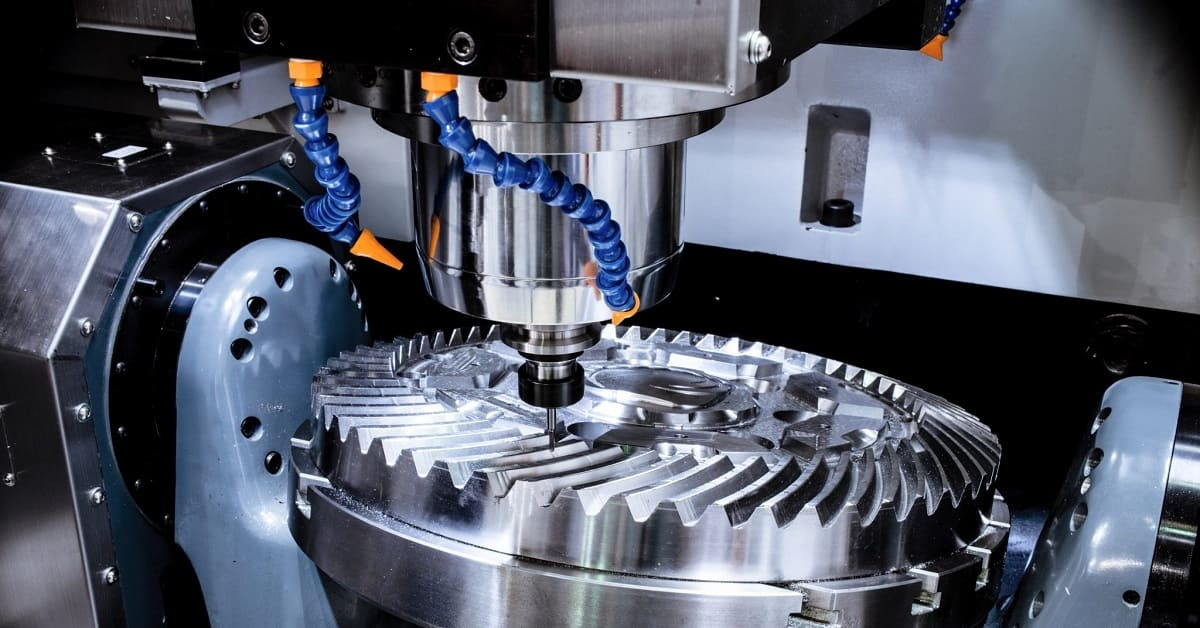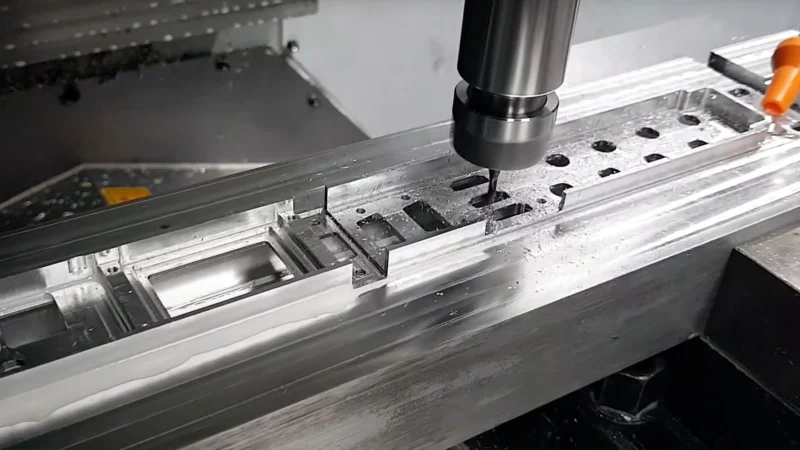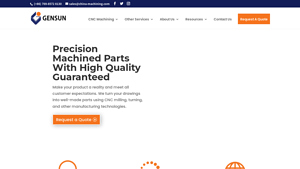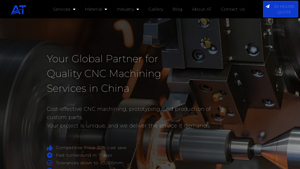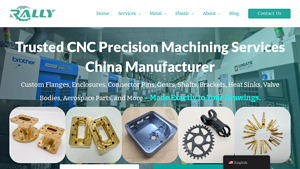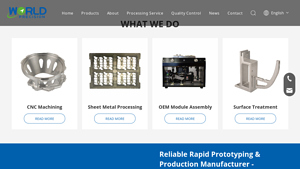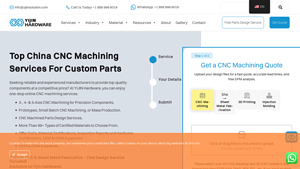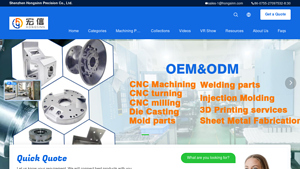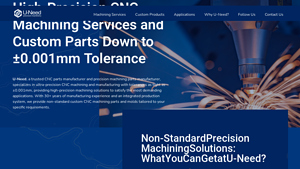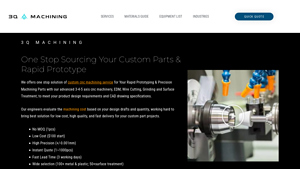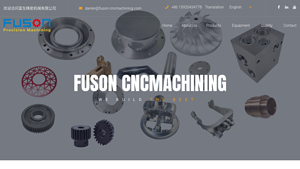Introduction: Navigating the Global Market for precision machining china
In an increasingly interconnected world, international B2B buyers face the pressing challenge of sourcing precision machining services that not only meet stringent quality standards but also align with competitive pricing and timely delivery. Understanding how to navigate the global market for precision machining in China is crucial for companies in regions such as Africa, South America, the Middle East, and Europe, including nations like Saudi Arabia and Nigeria. This guide serves as a comprehensive resource, addressing key aspects such as types of machining processes, applications across various industries, supplier vetting, and cost considerations.
As you delve into this guide, you will discover actionable insights that empower you to make informed purchasing decisions. From identifying reliable suppliers with proven track records to understanding the nuances of shipping logistics and quality control, this resource is designed to enhance your sourcing strategy. By leveraging the expertise and capabilities available in China, you can optimize your production processes, reduce costs, and ultimately drive your business forward. With a focus on practical solutions, this guide is tailored to help you navigate the complexities of sourcing precision machining services effectively and efficiently.
Understanding precision machining china Types and Variations
| Type Name | Key Distinguishing Features | Primary B2B Applications | Brief Pros & Cons for Buyers |
|---|---|---|---|
| CNC Milling | Utilizes computer-controlled machines for precision cutting; suitable for complex shapes. | Aerospace, automotive, electronics | Pros: High precision, versatility in materials; Cons: Initial setup costs can be high. |
| CNC Turning | Employs a rotating workpiece and stationary cutting tool; ideal for cylindrical parts. | Medical devices, automotive components | Pros: Excellent for high-volume production; Cons: Limited to symmetrical designs. |
| Wire EDM Machining | Uses electrical discharges to cut intricate shapes; provides high precision. | Aerospace, tool and die manufacturing | Pros: Exceptional detail and accuracy; Cons: Slower than traditional machining methods. |
| Additive Manufacturing | Builds parts layer by layer using 3D printing technology; allows for complex geometries. | Prototyping, custom tooling | Pros: Reduces material waste, rapid prototyping; Cons: Surface finish may require post-processing. |
| Sheet Metal Fabrication | Involves cutting, bending, and assembling metal sheets; suitable for larger components. | Electronics, automotive, industrial equipment | Pros: Cost-effective for large volumes; Cons: Limited to flat designs unless combined with other methods. |
What Are the Characteristics of CNC Milling in Precision Machining?
CNC milling is a highly versatile machining method that employs computer-controlled tools to cut and shape materials. This process is ideal for creating intricate designs and complex geometries, making it suitable for industries like aerospace, automotive, and electronics. When considering CNC milling, buyers should evaluate the machine’s precision capabilities, material compatibility, and the complexity of the part design. While the initial setup costs can be significant, the long-term benefits of high precision and adaptability often outweigh these expenses.
How Does CNC Turning Fit into Precision Machining?
CNC turning is specifically designed for producing cylindrical parts by rotating the workpiece against a stationary cutting tool. This method is prevalent in the medical device and automotive industries, where high-volume production of symmetrical components is required. Buyers should consider factors like tolerances, material selection, and production volume when opting for CNC turning. Although it is highly efficient for round shapes, buyers must be aware that this technique is limited to symmetrical designs, which may not suit every project.
Why Choose Wire EDM Machining for Precision Parts?
Wire EDM (Electrical Discharge Machining) is a precision technique that utilizes electrical discharges to cut through metal, allowing for intricate designs and high accuracy. This method is particularly useful in aerospace and tool and die manufacturing, where complex shapes are often required. Buyers should assess the machine’s operational speed, the intricacy of the part, and material types before making a decision. While wire EDM offers exceptional detail, it is typically slower than traditional machining methods, which may impact production timelines.
What Are the Advantages of Additive Manufacturing in Precision Machining?
Additive manufacturing, or 3D printing, is revolutionizing the precision machining landscape by enabling the construction of parts layer by layer. This method is particularly beneficial for rapid prototyping and custom tooling applications, allowing for complex geometries that traditional methods struggle to achieve. When considering additive manufacturing, buyers should evaluate the desired material properties, surface finish requirements, and production speed. Although this technique can significantly reduce material waste, parts may require additional post-processing to achieve the desired surface finish.
How Does Sheet Metal Fabrication Enhance Precision Machining Capabilities?
Sheet metal fabrication involves cutting, bending, and assembling metal sheets to create larger components, making it a cost-effective solution for high-volume production. This method is commonly used in industries such as electronics, automotive, and industrial equipment. Buyers should focus on the design requirements, tolerances, and the complexity of the assembly when considering sheet metal fabrication. While it is efficient for producing flat components, buyers should note that it may require integration with other machining methods to achieve more complex shapes.
Key Industrial Applications of precision machining china
| Industry/Sector | Specific Application of Precision Machining China | Value/Benefit for the Business | Key Sourcing Considerations for this Application |
|---|---|---|---|
| Aerospace | Manufacturing of Aircraft Components | High precision parts enhance safety and performance | Certifications (e.g., AS9100), material traceability |
| Medical Equipment | Production of Surgical Instruments | Ensures reliability and compliance with health standards | ISO certifications, biocompatible materials |
| Automotive | Custom Engine Components | Optimizes engine performance and fuel efficiency | Tolerance specifications, rapid prototyping capabilities |
| Electronics | Fabrication of Circuit Boards and Connectors | Supports miniaturization and enhances electronic performance | Material selection, surface finish requirements |
| Energy | Components for Renewable Energy Systems | Improves efficiency and longevity of energy solutions | Compliance with international standards, durability |
How is Precision Machining Applied in Aerospace Manufacturing?
In the aerospace sector, precision machining is crucial for producing highly complex aircraft components such as turbine blades and structural parts. These components require exceptional accuracy and adherence to strict safety standards. For international buyers, sourcing from China offers cost-effective solutions without compromising quality, provided they verify that manufacturers hold relevant certifications such as AS9100. Additionally, understanding material properties and ensuring traceability are critical to maintaining compliance with industry regulations.
What Role Does Precision Machining Play in Medical Equipment Production?
Precision machining plays a vital role in the production of surgical instruments and medical devices, where precision and reliability are paramount. Manufacturers in China leverage advanced CNC machining technologies to create components that meet stringent health and safety standards. For B2B buyers from Africa, South America, and Europe, selecting suppliers with ISO certifications and expertise in biocompatible materials is essential. This ensures that the products are safe for use in medical applications and meet regulatory requirements.
How Does Precision Machining Benefit the Automotive Industry?
In the automotive industry, precision machining is used to produce custom engine components, such as pistons and crankshafts, which optimize performance and fuel efficiency. Chinese manufacturers provide competitive pricing and rapid prototyping capabilities, allowing international buyers to accelerate product development. Buyers should focus on suppliers who understand tolerance specifications and can deliver high-quality parts consistently. Ensuring that the manufacturer can handle both low and high-volume production is also beneficial for scaling operations.
Why is Precision Machining Important for Electronics?
Precision machining is essential for the fabrication of intricate circuit boards and connectors in the electronics industry. As devices become smaller and more complex, the need for high precision increases. Chinese manufacturers can offer a variety of materials and surface finishes, which are crucial for enhancing the performance and reliability of electronic components. International buyers must consider the supplier’s ability to meet specific material selection criteria and their experience with advanced electronic manufacturing processes.
How Does Precision Machining Enhance Renewable Energy Solutions?
In the energy sector, particularly in renewable energy, precision machining is used to create components for wind turbines and solar panels. These components must withstand harsh environmental conditions while maintaining high efficiency. Chinese manufacturers can provide durable parts that improve the overall longevity and performance of energy systems. For international buyers, it’s essential to ensure that suppliers comply with international standards and can demonstrate the durability of their products, which is critical for long-term investments in energy infrastructure.
3 Common User Pain Points for ‘precision machining china’ & Their Solutions
Scenario 1: Quality Assurance Concerns in Sourcing Machined Parts
The Problem: One of the most pressing challenges faced by B2B buyers when sourcing precision machining services from China is the inconsistency in quality. Buyers may receive parts that do not meet the specified tolerances or material standards, leading to costly reworks, project delays, or even product failures. This issue is particularly concerning for industries such as aerospace or medical equipment, where precision and reliability are paramount. Buyers often find it difficult to assess the quality control measures of potential suppliers from afar, creating uncertainty in their procurement decisions.
The Solution: To mitigate quality concerns, buyers should prioritize working with manufacturers that have robust quality assurance processes in place. Look for suppliers who are ISO-certified and provide detailed inspection reports for their products. Before finalizing a contract, request samples of previous work to evaluate the manufacturing quality firsthand. Additionally, establishing clear specifications and tolerances in the initial stages of communication can help set expectations. Consider visiting the manufacturing facility if possible, or leverage third-party inspection services to verify quality standards before shipment. Utilizing platforms that facilitate supplier ratings and reviews can also assist in identifying reputable manufacturers.
Scenario 2: Communication Barriers and Cultural Differences
The Problem: International B2B transactions often come with the challenge of communication barriers, especially when working with suppliers in China. Language differences, varying business customs, and cultural misunderstandings can lead to misinterpretations of project requirements, resulting in delays and frustration. Buyers may find it difficult to communicate technical specifications or may feel their concerns are not adequately addressed due to these barriers.
The Solution: To overcome communication issues, buyers should establish a clear communication protocol from the outset. Utilize professional translators or bilingual project managers who can facilitate discussions and ensure that both parties fully understand the project requirements. It’s also beneficial to use visual aids, such as diagrams or CAD drawings, to communicate complex specifications. Regular updates and check-ins via video calls can foster a better understanding and build rapport. Additionally, consider using project management tools that allow for real-time collaboration and documentation, ensuring that all parties have access to the same information and can track progress easily.
Scenario 3: Long Lead Times and Shipping Delays
The Problem: B2B buyers often face long lead times and potential shipping delays when sourcing precision machining services from China. Factors such as high demand, customs clearance issues, and logistical challenges can significantly impact the timeline of a project. For companies operating under tight deadlines, such delays can result in missed market opportunities and financial losses.
The Solution: To address lead time challenges, buyers should work with suppliers who offer expedited manufacturing options and have established logistics partnerships. Clearly communicate your timelines and requirements upfront, allowing the supplier to adjust their workflow accordingly. Consider implementing a Just-In-Time (JIT) inventory strategy, where you order smaller quantities more frequently, to reduce the risk associated with long lead times. Additionally, negotiating terms that include penalties for missed deadlines can incentivize suppliers to prioritize your orders. Staying informed about potential shipping disruptions, especially during peak seasons or global events, can also help in planning ahead and mitigating risks associated with delays.
Strategic Material Selection Guide for precision machining china
What Are the Key Properties of Common Materials Used in Precision Machining in China?
When selecting materials for precision machining, understanding the specific properties and characteristics of each material is crucial for ensuring optimal product performance. Below, we analyze four common materials used in precision machining in China: Aluminum, Stainless Steel, Brass, and Nylon.
How Does Aluminum Perform in Precision Machining Applications?
Aluminum is widely favored in precision machining due to its lightweight and corrosion-resistant properties. It typically has a temperature rating of up to 150°C and offers excellent thermal and electrical conductivity.
Pros: Aluminum is relatively inexpensive and easy to machine, making it suitable for high-volume production. Its lightweight nature makes it ideal for applications in industries such as automotive and aerospace.
Cons: While it has good tensile strength, aluminum may not be suitable for high-stress applications compared to other metals. It can also be prone to scratching and denting.
Impact on Application: Aluminum is compatible with various media, including water and certain chemicals, but may not perform well in high-temperature environments.
Considerations for International Buyers: Buyers from regions like Africa and the Middle East should ensure compliance with international standards such as ASTM and JIS, particularly in industries like automotive and aerospace, where safety is paramount.
What Are the Benefits of Using Stainless Steel in Precision Machining?
Stainless steel is renowned for its strength and corrosion resistance, making it a top choice for many precision machining applications. It can withstand temperatures up to 800°C, depending on the grade.
Pros: Its durability and hygienic properties make it ideal for medical and food processing applications. Stainless steel also offers excellent weldability and formability.
Cons: The cost of stainless steel is generally higher than that of aluminum and brass, and it can be more challenging to machine due to its hardness, potentially increasing production time.
Impact on Application: Stainless steel is highly resistant to rust and chemical corrosion, making it suitable for harsh environments, including marine and chemical processing.
Considerations for International Buyers: Compliance with standards such as ISO and ASTM is critical, especially for industries like medical equipment, where material quality is strictly regulated.
Why Choose Brass for Precision Machining Needs?
Brass is a copper-zinc alloy known for its excellent machinability and acoustic properties. It typically maintains performance in temperatures up to 300°C.
Pros: Brass is highly malleable and offers good corrosion resistance, making it suitable for intricate designs and applications in plumbing and electrical components.
Cons: While it is durable, brass can be more expensive than aluminum and is less suitable for high-temperature applications due to its lower melting point.
Impact on Application: Brass is compatible with water and various chemicals, making it ideal for plumbing fittings and electrical connectors.
Considerations for International Buyers: Buyers should verify that the brass grades meet local standards, especially in regions like Europe where specific regulations apply to plumbing and electrical components.
How Does Nylon Enhance Precision Machining Applications?
Nylon is a synthetic polymer known for its strength and flexibility, making it an excellent choice for precision machining of non-metal components. It can withstand temperatures up to 120°C.
Pros: Nylon is lightweight, resistant to wear, and has low friction properties, making it suitable for applications such as gears and bearings.
Cons: It can absorb moisture, which may affect its dimensional stability and performance in high-humidity environments.
Impact on Application: Nylon’s chemical resistance makes it compatible with various media, but it may not be suitable for high-temperature applications.
Considerations for International Buyers: Compliance with material safety standards is essential, particularly for medical and food-related applications where material safety is a concern.
Summary Table of Material Selection for Precision Machining
| Material | Typical Use Case for precision machining china | Key Advantage | Key Disadvantage/Limitation | Relative Cost (Low/Med/High) |
|---|---|---|---|---|
| Aluminum | Automotive parts, aerospace components | Lightweight and corrosion-resistant | Lower tensile strength | Low |
| Stainless Steel | Medical equipment, food processing | High strength and corrosion resistance | Higher cost, harder to machine | High |
| Brass | Plumbing fittings, electrical components | Excellent machinability | More expensive, lower temperature tolerance | Med |
| Nylon | Gears, bearings, and non-metal components | Low friction, lightweight | Moisture absorption affects stability | Low |
This guide provides a comprehensive overview of material selection for precision machining in China, enabling international B2B buyers to make informed decisions that align with their specific application requirements and compliance standards.
In-depth Look: Manufacturing Processes and Quality Assurance for precision machining china
What Are the Key Stages in the Manufacturing Process for Precision Machining in China?
The manufacturing processes for precision machining in China are meticulously structured to ensure high-quality outcomes that meet diverse international standards. The typical stages include material preparation, forming, assembly, and finishing, each employing advanced techniques tailored to specific project requirements.
How Is Material Prepared for Precision Machining?
Material preparation is the foundation of any precision machining project. It begins with selecting the appropriate raw materials, which can include metals like aluminum, stainless steel, and titanium, as well as various plastics. Suppliers often provide a broad range of materials to cater to specific industry needs.
Once the material is selected, it undergoes rigorous inspection to ensure it meets the specified standards. This includes checking for defects, dimensions, and material properties. Advanced technologies, such as laser scanning and computerized measurement systems, are frequently used to verify material integrity before proceeding to the next stage.
What Forming Techniques Are Commonly Used in Precision Machining?
The forming stage involves converting raw materials into usable parts through various machining techniques. CNC (Computer Numerical Control) milling and turning are among the most prevalent methods. These techniques allow for intricate designs and precise tolerances, often down to ±0.005mm, which is critical for industries such as aerospace, automotive, and medical equipment.
Other techniques like Wire EDM (Electrical Discharge Machining) and laser cutting are also employed for complex geometries. Each method is chosen based on the specific requirements of the part, including size, shape, and material type, ensuring optimal efficiency and quality.
How Is Assembly Handled in the Manufacturing Process?
After forming, parts may require assembly, especially for complex components that consist of multiple machined pieces. This stage often involves precise fitting and alignment to ensure functionality. Experienced technicians typically oversee the assembly process, using specialized tools and equipment to maintain accuracy.
Quality checks are integrated throughout the assembly stage to prevent defects from propagating. This proactive approach is essential for ensuring that the final product meets both the design specifications and the client’s expectations.
What Finishing Processes Are Essential for Quality Machined Parts?
Finishing is the final stage in the manufacturing process and plays a crucial role in enhancing both the aesthetic and functional properties of precision machined parts. Common finishing techniques include anodizing, powder coating, plating, and polishing. These processes not only improve the appearance of parts but also provide essential protective coatings that can enhance durability and corrosion resistance.
The choice of finishing method is often dictated by the application of the parts and the environmental conditions they will face. For example, components used in the medical field may require specific finishes to ensure biocompatibility.
How Is Quality Assurance Implemented in Precision Machining?
Quality assurance is a cornerstone of the precision machining process in China, ensuring that products meet stringent international and industry-specific standards. Companies often adhere to ISO 9001, which outlines requirements for quality management systems, and other certifications like ISO 13485 for medical devices and API for oil and gas components.
What Are the Key Quality Control Checkpoints?
Quality control (QC) is integrated into various stages of the manufacturing process through several key checkpoints:
-
Incoming Quality Control (IQC): This initial checkpoint focuses on the quality of incoming materials. Only materials that meet predefined standards are accepted for production.
-
In-Process Quality Control (IPQC): During the manufacturing process, IPQC involves continuous monitoring of the production environment and operations. This may include regular measurements and inspections of parts to ensure they conform to specifications.
-
Final Quality Control (FQC): After production, FQC verifies that the finished parts meet all quality standards before shipment. This includes comprehensive inspections and testing, which may involve dimensional checks, surface finish evaluations, and functionality tests.
What Testing Methods Are Commonly Used?
Testing methods vary depending on the industry and the specific requirements of the parts. Common methods include:
-
Dimensional Inspection: Utilizing tools like calipers and CMM (Coordinate Measuring Machines) to ensure parts meet specified tolerances.
-
Material Testing: Conducting tests such as tensile strength and hardness testing to verify material properties.
-
Functional Testing: For components that must perform specific tasks, functional tests ensure that they operate correctly under expected conditions.
How Can B2B Buyers Verify Supplier Quality Control Practices?
B2B buyers must take proactive steps to verify the quality control practices of potential suppliers in China. Here are some effective strategies:
What Audits and Reports Should Be Requested?
Buyers should request access to quality management system documentation, including:
-
ISO Certifications: Verifying that the supplier holds relevant ISO certifications (e.g., ISO 9001, ISO 13485) can provide assurance of their commitment to quality.
-
Inspection Reports: Requesting detailed inspection reports can help buyers understand the QC measures taken during production.
-
Audit Results: Conducting third-party audits can offer an independent assessment of the supplier’s quality processes and capabilities.
Why Are Third-Party Inspections Important?
Engaging third-party inspection services can provide an objective evaluation of the supplier’s manufacturing and quality assurance processes. These inspections can include random sampling of products, verifying compliance with specifications, and assessing the overall manufacturing environment.
What Are the Quality Control Nuances for International B2B Buyers?
For international buyers, particularly those from Africa, South America, the Middle East, and Europe, understanding the nuances of quality control in China is crucial. Buyers should be aware of:
-
Cultural Differences: Communication styles and business practices may differ significantly, necessitating clear agreements and expectations to ensure quality standards are met.
-
Regulatory Compliance: Different regions may have specific regulations regarding product quality and safety. Buyers must ensure that their suppliers comply with these regulations to avoid legal issues.
-
Logistical Considerations: Understanding the logistics of shipping and customs can impact product delivery times and quality. Buyers should work with suppliers experienced in international shipping to mitigate risks.
By paying careful attention to these manufacturing processes and quality assurance practices, B2B buyers can confidently partner with precision machining suppliers in China, ensuring they receive high-quality products that meet their specific needs.
Practical Sourcing Guide: A Step-by-Step Checklist for ‘precision machining china’
Introduction
Sourcing precision machining services in China can be a strategic move for international B2B buyers seeking quality, cost-effectiveness, and rapid turnaround. This checklist serves as a practical guide to help you navigate the complexities of selecting a reliable supplier, ensuring that you secure high-quality parts that meet your specifications.
Step 1: Define Your Technical Specifications
Clearly outline the technical requirements of your project, including materials, tolerances, and production volumes. This step is critical as it sets the foundation for your supplier’s understanding of your needs. Be specific about dimensions, finishes, and any industry standards that must be adhered to, as this will help in accurately assessing supplier capabilities.
Step 2: Research Potential Suppliers
Conduct thorough research to identify potential suppliers specializing in precision machining. Look for companies with a proven track record, ideally with experience in your specific industry. Utilize platforms such as industry forums, trade shows, and online directories to gather a list of candidates, and prioritize those with positive reviews and established reputations.
Step 3: Verify Supplier Certifications
Ensure that your chosen suppliers hold relevant certifications, such as ISO 9001, which demonstrates their commitment to quality management systems. Certifications not only indicate a supplier’s adherence to international quality standards but also reflect their capability to meet stringent requirements. Request copies of these certifications and check their validity.
Step 4: Evaluate Manufacturing Capabilities
Assess the manufacturing capabilities of potential suppliers by inquiring about their equipment and technology. Look for advanced CNC machining capabilities, including both milling and turning, as well as any specialized processes like EDM or laser cutting. Understanding their technological capabilities will help you determine if they can handle the complexity of your project.
Step 5: Request Samples and Prototypes
Before placing a large order, request samples or prototypes of your parts. This allows you to evaluate the quality of their work firsthand and ensures they can meet your specifications. Pay attention to the finish, dimensional accuracy, and overall craftsmanship, as these factors will directly impact the performance of your final product.
Step 6: Discuss Pricing and Payment Terms
Engage in discussions about pricing structures and payment terms upfront. A transparent conversation about costs will help you avoid hidden fees later on. Look for suppliers who offer competitive pricing without compromising quality, and establish clear payment terms to ensure a smooth transaction process.
Step 7: Assess Logistics and Delivery Options
Finally, consider the supplier’s logistics capabilities, including shipping options and delivery timelines. A supplier with robust international logistics experience can significantly reduce lead times and ensure that your parts arrive as scheduled. Confirm their ability to handle customs documentation and any potential tariffs that may apply to your shipments.
By following these steps, you can effectively navigate the sourcing process for precision machining in China, ensuring that you partner with a supplier that meets your quality, cost, and delivery requirements.
Comprehensive Cost and Pricing Analysis for precision machining china Sourcing
Understanding the cost structure of precision machining in China is crucial for international buyers looking to make informed sourcing decisions. This analysis will break down the primary components of cost, the various factors that influence pricing, and provide actionable tips for buyers.
What Are the Key Cost Components in Precision Machining in China?
-
Materials: The choice of materials significantly impacts the overall cost. Common materials like aluminum and stainless steel may offer lower prices due to availability, while specialized materials such as titanium or high-performance plastics can lead to higher costs. Buyers should assess material properties relative to their project requirements.
-
Labor: Labor costs in China are generally lower than in Western countries, but they can vary based on the complexity of the machining process and the skill level of the workforce. Skilled labor, particularly for intricate designs, may command higher wages, influencing the overall cost.
-
Manufacturing Overhead: This includes costs associated with equipment maintenance, utilities, and facility expenses. Well-established manufacturers with advanced machinery may have higher overhead but can offer better precision and reliability.
-
Tooling: Tooling costs are critical, especially for custom parts. The initial investment in tooling can be substantial, but it often decreases on a per-unit basis as production volume increases. Buyers should inquire about tooling costs upfront to understand the total investment.
-
Quality Control (QC): Stringent quality assurance processes add to costs but are essential for ensuring the reliability of machined parts. Suppliers often provide certifications (like ISO 9001) that can enhance trust, though they may also reflect in higher pricing.
-
Logistics: Shipping and handling costs can vary widely depending on the destination and shipping method. International logistics can add complexity, so understanding Incoterms and potential customs duties is vital.
-
Margin: Suppliers will include a profit margin in their pricing, which can vary based on competition and their operational efficiencies. Negotiating terms can sometimes lead to more favorable margins for buyers.
What Influences Pricing in Precision Machining?
-
Volume and Minimum Order Quantity (MOQ): Higher volumes typically lead to lower per-unit costs, making it advantageous for buyers with larger orders. Conversely, small batch orders may incur higher costs due to the fixed expenses associated with setup and tooling.
-
Specifications and Customization: Highly customized parts or complex geometries will generally attract higher prices. Providing detailed specifications can help suppliers offer more accurate quotes.
-
Material Selection: As mentioned, the type of material chosen impacts cost. Buyers should evaluate the performance needs against the budget when selecting materials.
-
Quality and Certifications: The presence of quality certifications can justify a premium. Buyers should weigh the importance of certifications against the project requirements.
-
Supplier Factors: The reputation and experience of the supplier can influence pricing. Established suppliers may charge more but often provide better reliability and support.
-
Incoterms: Understanding the shipping terms can help buyers avoid unexpected costs. Incoterms define responsibilities between buyers and sellers regarding shipping, insurance, and tariffs.
What Are Some Buyer Tips for Cost-Efficiency in Sourcing?
-
Negotiate Effectively: Don’t hesitate to negotiate prices, especially for larger orders. Suppliers may be willing to offer discounts for bulk purchases or long-term contracts.
-
Consider Total Cost of Ownership (TCO): Beyond initial pricing, consider long-term costs such as maintenance, replacement, and shipping. Evaluating TCO can provide a clearer picture of the overall value.
-
Research and Compare Suppliers: Look for multiple quotes and compare not only prices but also quality and delivery timelines. This competitive analysis can lead to better deals.
-
Plan for Currency Fluctuations: For buyers from regions such as Africa or South America, currency exchange rates can impact costs. Consider locking in rates or negotiating terms that mitigate this risk.
-
Engage Local Experts: Working with local agents or consultants can help navigate the complexities of international sourcing and ensure that all factors are considered.
Disclaimer on Pricing
Prices for precision machining services can fluctuate based on market conditions, material availability, and supplier capabilities. This analysis serves as a guide, and buyers should seek direct quotes from suppliers for the most accurate pricing tailored to their specific needs.
Alternatives Analysis: Comparing precision machining china With Other Solutions
Understanding Alternatives in Precision Machining Solutions
When sourcing precision machined components, international B2B buyers often face the dilemma of choosing the best manufacturing solution to meet their unique needs. While precision machining in China has gained popularity due to its cost-effectiveness and quality, several alternative solutions exist that may suit different operational requirements and preferences. This analysis provides a comparative overview of precision machining in China against other viable alternatives, helping buyers make informed decisions.
Comparison Table
| Comparison Aspect | Precision Machining China | Additive Manufacturing (3D Printing) | Traditional Machining (CNC) |
|---|---|---|---|
| Performance | High precision with tight tolerances (±0.005mm) | Variable accuracy depending on the technology and material | High precision, but may require more setup time |
| Cost | Competitive pricing, typically 30-50% lower than Western alternatives | Can be cost-effective for low-volume production; expensive for high-volume | Higher operational costs, especially for small batches |
| Ease of Implementation | Established supply chains and logistics; quick prototyping | Requires initial investment in equipment; material limitations | Well-understood processes; requires skilled labor |
| Maintenance | Low maintenance due to automated processes | Maintenance can be high for equipment; material waste can be an issue | Regular maintenance required for machines; downtime can occur |
| Best Use Case | High-volume production with stringent quality standards | Custom parts, rapid prototyping, and complex geometries | High precision parts where material properties are critical |
Detailed Breakdown of Alternatives
Additive Manufacturing (3D Printing)
Additive manufacturing offers a unique approach to creating parts by building them layer by layer. This method is particularly advantageous for producing complex geometries that would be difficult or impossible to achieve with traditional machining. The major benefits include rapid prototyping capabilities and reduced material waste. However, the cost can escalate for larger production runs, and the range of materials is often limited compared to traditional methods. Thus, while it excels in specific scenarios, such as custom prototypes or low-volume production, it may not be suitable for all applications.
Traditional Machining (CNC)
Traditional CNC machining has been a staple in manufacturing for decades. This approach provides high precision and is well-suited for producing high-quality parts across various materials. Traditional machining is particularly effective for high-volume production where setup costs can be amortized over larger quantities. However, it often requires a longer lead time for setup and can be more expensive for small batch sizes. Additionally, skilled labor is essential to ensure optimal operation and maintenance of the machinery, which can introduce variability in outcomes.
Conclusion: How to Choose the Right Solution for Your Needs
When selecting a manufacturing solution, B2B buyers must consider several factors, including production volume, budget constraints, and the complexity of the parts required. Precision machining in China stands out for its combination of cost-effectiveness and high quality, making it an ideal choice for high-volume production. However, for projects requiring rapid prototyping or complex geometries, additive manufacturing may prove more beneficial. Meanwhile, traditional machining remains a reliable option for high-precision needs across various materials. Ultimately, understanding the specific requirements of your project will guide you in choosing the most appropriate solution that aligns with your operational goals.
Essential Technical Properties and Trade Terminology for precision machining china
What Are the Key Technical Properties for Precision Machining in China?
Understanding the technical specifications involved in precision machining is crucial for international buyers to ensure they receive high-quality parts that meet their specific requirements. Here are some critical properties to consider:
1. Material Grade
Material grade refers to the classification of materials based on their composition and mechanical properties. Common materials used in precision machining include aluminum, stainless steel, brass, and titanium. The choice of material affects the part’s strength, weight, corrosion resistance, and overall performance. Selecting the appropriate material grade ensures that the final product aligns with the intended application and industry standards.
2. Tolerance
Tolerance is the permissible limit or limits of variation in a physical dimension. It is expressed as a range (e.g., ±0.005 mm) and is critical for ensuring parts fit together correctly and function as intended. Tight tolerances are essential in industries like aerospace and medical equipment, where precision is paramount. Understanding tolerance requirements helps buyers specify their needs clearly and avoid costly rework or failures.
3. Surface Finish
Surface finish denotes the texture and smoothness of a machined part’s surface. Various finishes, such as anodizing, plating, or polishing, can be applied to improve aesthetics, corrosion resistance, or friction properties. The required surface finish is often dictated by the part’s application; for example, medical devices may require a higher finish quality to meet hygiene standards. Buyers must communicate their surface finish requirements to ensure compliance with industry regulations.
4. Machining Process
Different machining processes, such as CNC milling, turning, or wire EDM, are employed based on the part’s geometry and the required precision. Each process has its own advantages and limitations in terms of complexity, cost, and material compatibility. Understanding the appropriate machining process helps buyers select the right manufacturer and align their expectations with production capabilities.
5. Lead Time
Lead time refers to the duration from order placement to delivery. In the fast-paced global market, understanding lead times is vital for planning and inventory management. Precision machining companies in China often specialize in rapid prototyping and quick turnaround times, which can significantly affect the time-to-market for new products. Buyers should inquire about lead times to avoid delays in their supply chain.
What Are Common Trade Terms in Precision Machining?
Familiarity with industry-specific jargon can enhance communication and efficiency in the B2B procurement process. Here are some common terms used in precision machining:
1. OEM (Original Equipment Manufacturer)
OEM refers to a company that produces parts or equipment that may be marketed by another manufacturer. In the context of precision machining, an OEM may outsource the production of components to specialized machining companies in China. Understanding OEM relationships is essential for buyers seeking to maintain brand integrity and quality.
2. MOQ (Minimum Order Quantity)
MOQ indicates the smallest number of units a supplier is willing to produce or sell. This term is crucial for buyers, especially startups or small businesses, as it helps them gauge the feasibility of placing an order with a manufacturer. Knowing the MOQ allows buyers to plan their budgets and inventory effectively.
3. RFQ (Request for Quotation)
An RFQ is a document issued by a buyer to solicit price quotes from suppliers for specific products or services. It outlines the buyer’s requirements, including materials, dimensions, tolerances, and delivery timelines. Submitting a detailed RFQ enables buyers to receive accurate quotes and compare different suppliers based on pricing and capabilities.
4. Incoterms
Incoterms (International Commercial Terms) are a set of standardized trade terms that define the responsibilities of buyers and sellers in international transactions. They specify who is responsible for shipping, insurance, and tariffs. Familiarity with Incoterms is crucial for buyers to understand their liabilities and ensure smooth logistics when sourcing from overseas manufacturers.
By grasping these essential technical properties and trade terminologies, international B2B buyers can navigate the complexities of precision machining in China, making informed decisions that lead to successful partnerships and high-quality products.
Navigating Market Dynamics and Sourcing Trends in the precision machining china Sector
What Are the Current Market Dynamics and Key Trends in the Precision Machining Sector in China?
The global precision machining market is increasingly driven by technological advancements, rising demand for customized solutions, and the need for high-quality manufacturing. As industries across Africa, South America, the Middle East, and Europe continue to evolve, international B2B buyers are seeking reliable partnerships with Chinese manufacturers who can meet their unique production requirements. Key trends include the adoption of advanced CNC technology, which enables manufacturers to produce complex geometries with tight tolerances, often down to ±0.005mm. Rapid prototyping and quick turnaround times are becoming essential in a market that values speed and efficiency, allowing companies to innovate and bring products to market faster.
Moreover, there is a noticeable shift towards flexible manufacturing systems that can accommodate both low-volume and mass production. This flexibility is particularly appealing to buyers looking to minimize inventory costs while ensuring high-quality output. Additionally, the rise of digital manufacturing and Industry 4.0 technologies, such as IoT and AI, is enhancing supply chain transparency and operational efficiencies. International buyers are increasingly prioritizing suppliers that not only provide cost-effective solutions but also demonstrate a commitment to quality assurance and customer service.
How Important Is Sustainability and Ethical Sourcing in B2B Precision Machining?
Sustainability and ethical sourcing have become crucial considerations for B2B buyers in the precision machining sector. The environmental impact of manufacturing processes is under scrutiny, prompting companies to adopt greener practices. Buyers are increasingly looking for suppliers that have implemented robust environmental management systems and hold certifications such as ISO 14001. These certifications not only demonstrate a commitment to reducing waste and energy consumption but also enhance the credibility of suppliers in the eyes of international buyers.
Furthermore, the use of sustainable materials, such as recycled metals and eco-friendly coatings, is gaining traction. International buyers are actively seeking partnerships with manufacturers who can provide these green alternatives, aligning their supply chains with their corporate social responsibility goals. Ethical sourcing practices, including fair labor conditions and responsible sourcing of raw materials, are also becoming non-negotiable factors for many companies. This trend reflects a broader shift towards transparency and accountability in global supply chains, making it imperative for suppliers to communicate their sustainability efforts effectively.
What Is the Evolution of the Precision Machining Sector in China?
The evolution of the precision machining sector in China can be traced back to the early 2000s when the country began to establish itself as a global manufacturing powerhouse. Initially, the focus was on low-cost, high-volume production, often at the expense of quality. However, as global demand for precision and customization grew, Chinese manufacturers adapted by investing in advanced CNC technologies and enhancing their quality control measures.
Today, the sector is characterized by a strong emphasis on innovation and efficiency, with many companies adopting lean manufacturing principles and advanced robotics. This transformation has enabled Chinese manufacturers to compete not only on price but also on the quality and complexity of their machined components. As a result, they have become preferred partners for international buyers across various industries, from aerospace to medical equipment, seeking high-quality, cost-effective solutions.
Frequently Asked Questions (FAQs) for B2B Buyers of precision machining china
-
How can I ensure the quality of precision machined parts from China?
To guarantee quality, partner with ISO-certified manufacturers who have robust quality assurance processes in place. Request detailed documentation, including inspection reports and material certifications. Engage in direct communication with the supplier to understand their quality control measures. Additionally, consider visiting the facility or hiring a third-party inspection service to conduct quality checks before shipment. This proactive approach will help mitigate risks and ensure that the parts meet your specifications and standards. -
What are the typical lead times for precision machining projects in China?
Lead times can vary based on project complexity, quantity, and manufacturing capabilities. Generally, you can expect a turnaround of 7 to 14 days for prototypes and 2 to 4 weeks for larger production runs. However, it’s essential to discuss your specific requirements with the supplier to get an accurate timeline. Factors such as material availability and shipping logistics can also affect lead times, so plan accordingly to avoid delays in your supply chain. -
What customization options are available for precision machining services?
Most precision machining companies offer extensive customization options, including varying materials, sizes, and finishes. You can specify tolerances, surface treatments, and even unique geometrical shapes. When discussing your project, provide detailed drawings and specifications to ensure that the manufacturer fully understands your requirements. This collaboration will facilitate the production of parts that fit seamlessly into your project, enhancing overall functionality and performance. -
What are the minimum order quantities (MOQs) for precision machined parts?
Minimum order quantities can differ significantly between manufacturers and are often influenced by the complexity of the part and production capabilities. Some suppliers may offer low MOQs for prototypes (as few as 1 to 10 units), while larger production runs might require MOQs in the hundreds or thousands. It’s advisable to clarify MOQs during initial discussions to ensure they align with your project needs and budget. -
What payment terms should I expect when sourcing from China?
Payment terms can vary, but common practices include a deposit (usually 30-50%) upfront, with the balance due upon completion or prior to shipping. Some suppliers may also offer letter of credit or PayPal for added security. Ensure you discuss and negotiate payment terms before finalizing any agreements. Additionally, consider using escrow services for high-value transactions to safeguard your investment. -
How can I vet a supplier in China for precision machining?
Start by researching the supplier’s reputation through online reviews, industry forums, and references from previous clients. Request company certifications, such as ISO 9001, to verify their commitment to quality. Conduct video calls or factory visits, if possible, to assess their capabilities and working conditions. Additionally, consider requesting samples of their work to evaluate quality before committing to larger orders. -
What logistics considerations should I keep in mind when importing machined parts from China?
Be aware of shipping methods, customs regulations, and potential tariffs when importing parts. Discuss logistics with your supplier to determine the most efficient and cost-effective shipping options. Ensure that all necessary documentation, such as invoices, packing lists, and customs declarations, are in order to avoid delays at customs. Engaging a freight forwarder can simplify the process and help navigate international shipping complexities. -
What industries typically utilize precision machining services from China?
Precision machining services are widely used across various industries, including aerospace, automotive, electronics, medical equipment, and robotics. Each sector has unique requirements, from stringent quality standards to specialized materials. Understanding the specific needs of your industry can help you communicate effectively with suppliers and ensure that they have the expertise and experience to meet your project demands.
Important Disclaimer & Terms of Use
⚠️ Important Disclaimer
The information provided in this guide, including content regarding manufacturers, technical specifications, and market analysis, is for informational and educational purposes only. It does not constitute professional procurement advice, financial advice, or legal advice.
While we have made every effort to ensure the accuracy and timeliness of the information, we are not responsible for any errors, omissions, or outdated information. Market conditions, company details, and technical standards are subject to change.
B2B buyers must conduct their own independent and thorough due diligence before making any purchasing decisions. This includes contacting suppliers directly, verifying certifications, requesting samples, and seeking professional consultation. The risk of relying on any information in this guide is borne solely by the reader.
Top 9 Precision Machining China Manufacturers & Suppliers List
1. Gensun Precision Machining – CNC Machining Services
Domain: china-machining.com
Registered: 2008 (17 years)
Introduction: Gensun Precision Machining offers precision CNC machining services including CNC milling, CNC turning, die casting, precision casting, sheet metal fabrication, stamping, laser cutting, bending, welding, EDM, aluminum extrusion, prototyping, and surface finishing. They specialize in rapid prototyping and low to high-volume production (up to 1000+ units) with a strong emphasis on quality control. Th…
2. At Machining – CNC Machining Services
Domain: at-machining.com
Registered: 2014 (11 years)
Introduction: CNC Machining Services: CNC Milling, CNC Turning, Precision 5-Axis CNC Machining, Swiss CNC Machining, Small Batch CNC Machining, Precision Micro Machining, Sheet Metal Fabrication, Surface Finishing (Anodizing, Electroplating, Powder Coating), Carburizing Heat Treatment, Wire EDM Machining. Materials: Metal, Plastic, Ceramic, Carbon Fiber, Superalloys, Kovar Alloy. Industries Served: Automotive, …
3. RALLY – CNC Precision Machining Services
Domain: rallyprecision.com
Registered: 2011 (14 years)
Introduction: RALLY offers CNC precision machining services including CNC turning, milling, and complex component production. Key capabilities include: CNC Turning with accuracy up to ±0.005mm, CNC Milling with 3-, 4-, and 5-axis machining, and multi-axis machining for complex parts. Material range includes Aluminum (6061, 7075), Steel, Stainless Steel, Brass, Plastics, and Titanium. Surface finishing options i…
4. World Precision – Precision Machining & OEM Modules
Domain: world-precision-part.com
Registered: 2022 (3 years)
Introduction: Manufacturer: Guangdong World Precision Technology Co., Ltd.
Experience: 22+ years in Precision Machining, Sheet Metal Processing, Precision Module, OEM Modules manufacturing.
Facility: 200,000+m² with 3000+ employees, over 30% R&D engineers.
Machinery: 700+ advanced CNC and Sheet Metal Processing Machines from Germany and Japan, including 5-axis DMG & MAZAK CNC Machines, Bystronic Laser Cutting M…
5. Yijin Hardware – CNC Machining Services
Domain: yijinsolution.com
Registered: 2019 (6 years)
Introduction: Yijin Hardware offers a range of CNC machining services including CNC Turning, CNC Milling, 5-Axis CNC Machining, and Rapid CNC Machining. They provide custom parts manufacturing for various industries such as Aerospace, Automotive, Consumer Products, Energy, Medical, Maritime, Defense, Semiconductor, and Robotics. The materials available for machining include a variety of plastics (ABS, Acetal, H…
6. Hongsinn – Custom CNC Machining Services
Domain: m.hongsinn.com
Registered: 2013 (12 years)
Introduction: This company, Hongsinn – Custom CNC Machining Services, is a notable entity in the market. For specific product details, it is recommended to visit their website directly.
7. U-Need Precision Machining – Custom CNC Parts & Molds
Domain: uneedpm.com
Registered: 2019 (6 years)
Introduction: U-Need Precision Machining specializes in custom CNC parts and molds with a focus on high-precision machining solutions. Key product details include:
– Services: CNC Turning, CNC Milling, CNC Grinding, Wire EDM Machining, CNC EDM, Metal Stamping, Custom Products, Precision Molds, Silicone/Plastic Products.
– Tolerances: As tight as ±0.001mm.
– Quality: 99.3% qualified rate, ISO 9001:2015 certifie…
8. 3Q Machining – Custom CNC Machining Services
Domain: 3qmachining.com
Registered: 2020 (5 years)
Introduction: 3Q Machining offers custom CNC machining services including rapid prototyping, precision machining, and a variety of machining techniques such as CNC milling, CNC turning, CNC cutting, CNC drilling, and 5-axis machining. They provide services for both metal and plastic machining, with materials including aluminum, brass, copper, steel, stainless steel, titanium, ABS, nylon, PEEK, and PTFE. The com…
9. Fuson – Custom Machining Parts
Domain: fuson-cncmachining.com
Registered: 2019 (6 years)
Introduction: Fuson Precision Machining is a CNC precision machine shop in China offering custom machining parts manufacturing services. Key products include:
– Custom Turning Parts
– Milling Machined Parts
– Wire Cut EDM Parts
– 5 Axis Milling Components
– Sheet Metal Components
– Gear Wheel Manufacturing
– Surface Treatment Services
Materials available include stainless steel, aluminum alloys, and various an…
Strategic Sourcing Conclusion and Outlook for precision machining china
In the ever-evolving landscape of global manufacturing, strategic sourcing from precision machining suppliers in China offers immense advantages for international B2B buyers. By leveraging the extensive capabilities of Chinese manufacturers, companies can access high-quality precision parts at competitive prices, facilitating cost-effective production without compromising on quality. The emphasis on strict quality control, rapid prototyping, and timely delivery enhances operational efficiency and accelerates time-to-market for innovative products across various industries.
As markets in Africa, South America, the Middle East, and Europe continue to expand, the demand for reliable machining solutions will only grow. By establishing partnerships with proven suppliers like Gensun Precision Machining and AT Machining, businesses can ensure they stay ahead of the competition while achieving significant cost savings and superior product quality.
Looking ahead, international buyers should prioritize building strong relationships with these manufacturers, embracing a collaborative approach to product development. This strategic sourcing not only mitigates risks but also opens doors to innovative solutions tailored to unique market needs. Take the next step in enhancing your supply chain—explore the opportunities in precision machining in China today.
